Blog

NDIS Physiotherapy Fees: What You Need to Know
Physiotherapy is among the most well-liked and beneficial therapies backed by the NDIS. Regardless of whether you are incorporating strength development, mobility, pain relief, or rehabilitation of an injury into
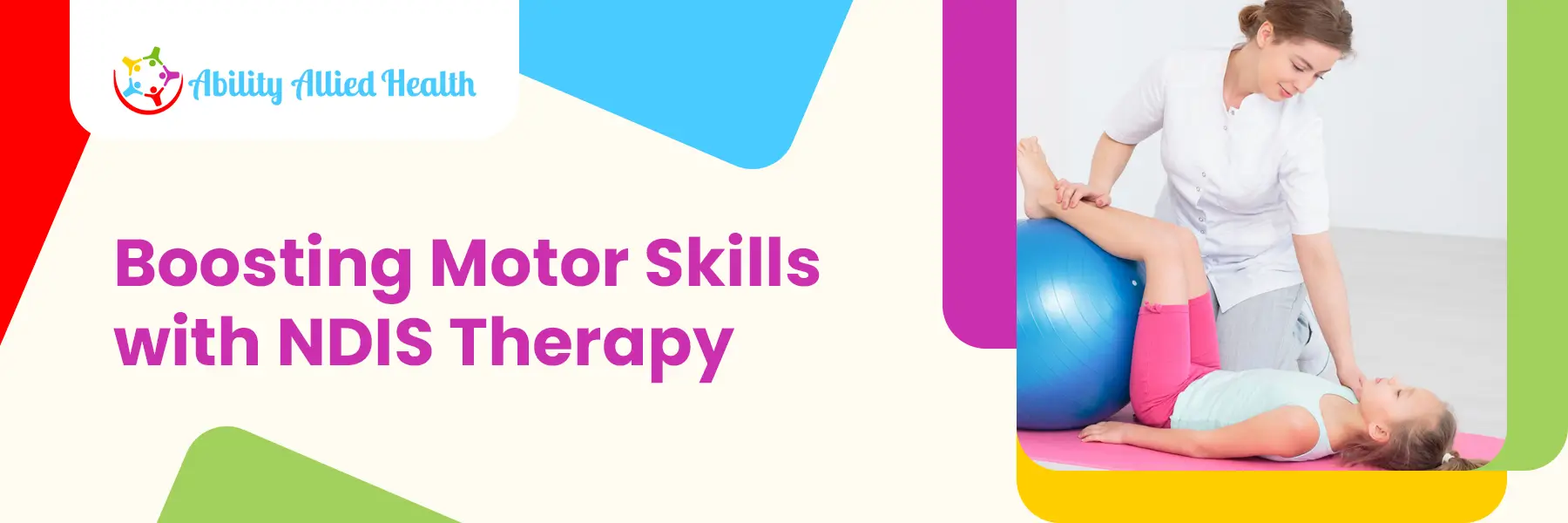
How an Exercise Physiologist Can Improve Motor Coordination Through NDIS Physiotherapy
When you think about movement, you don’t necessarily sit back and reflect how the body and brain have worked together to achieve that motion. From the usual daily routines like
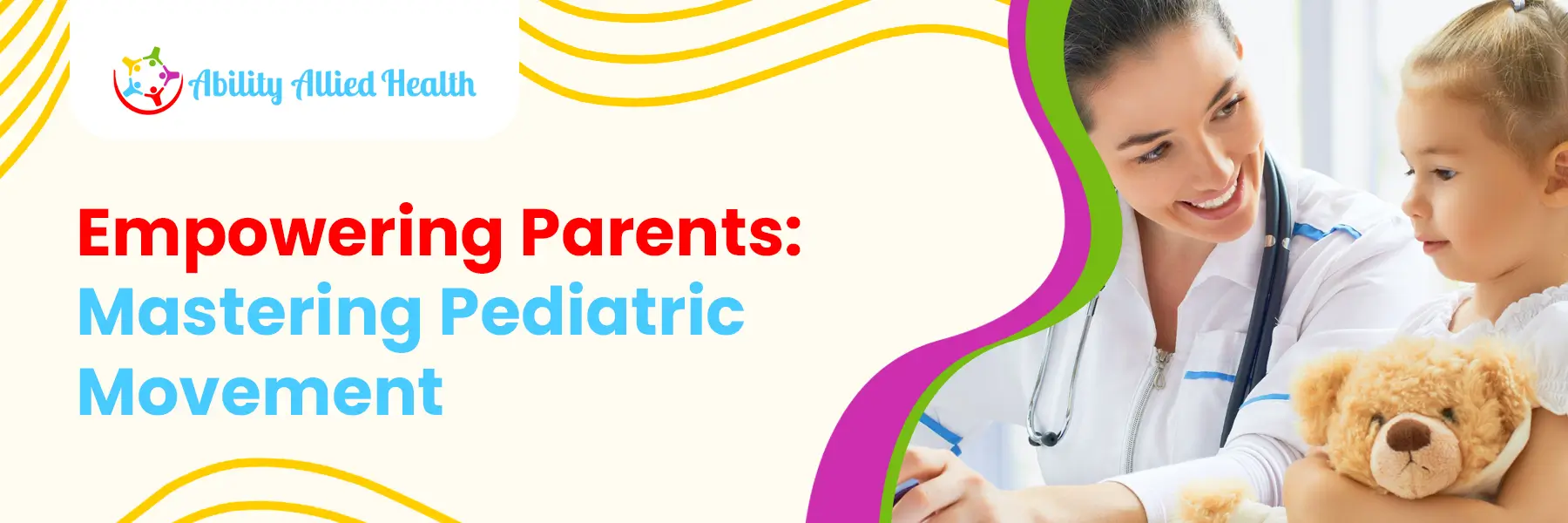
Understanding Paediatric Physiology: A Parent’s Guide to Developmental Movement
When your baby finally makes that first wobbly step or figures out rolling over after weeks of practice, it’s not just a milestone but also a peek at the amazing
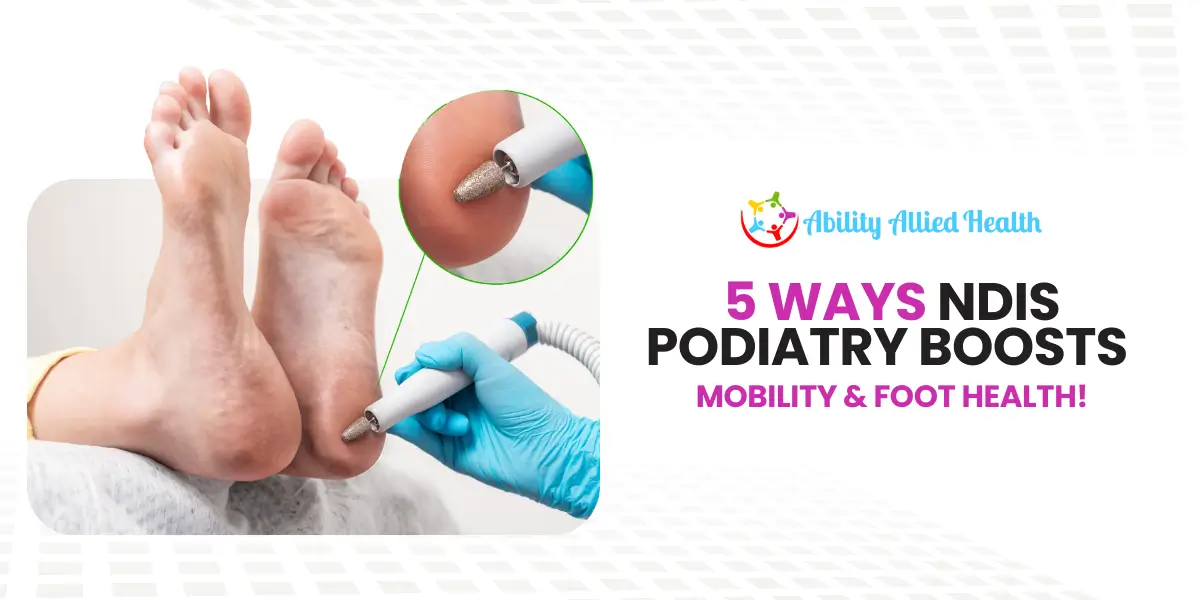
5 Ways NDIS Podiatry Enhances Mobility and Foot Health for Participants
For people with disabilities, mobility and foot health are crucial to their independence and overall well-being. Daily living may be greatly affected by foot problems, and hence proper care is
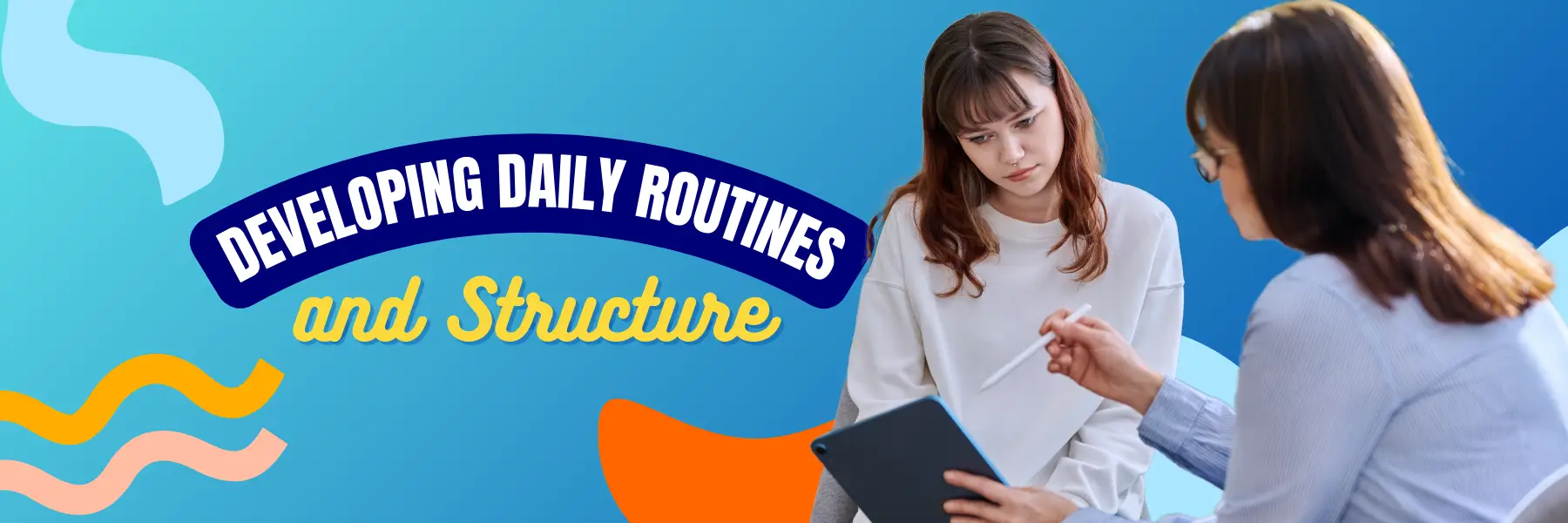
Mental health support through Occupational Therapy in Sydney
Have you ever wondered why something as basic as getting out of bed, taking a shower, or even making a cup of tea is not possible when suffering from mental

Occupational Therapy for Children with Sensory Processing Disorders in Sydney
For many children, the world can feel like a chaotic blend of sights, sounds, and sensations that seem impossible to navigate. A child will get upset about the hum of
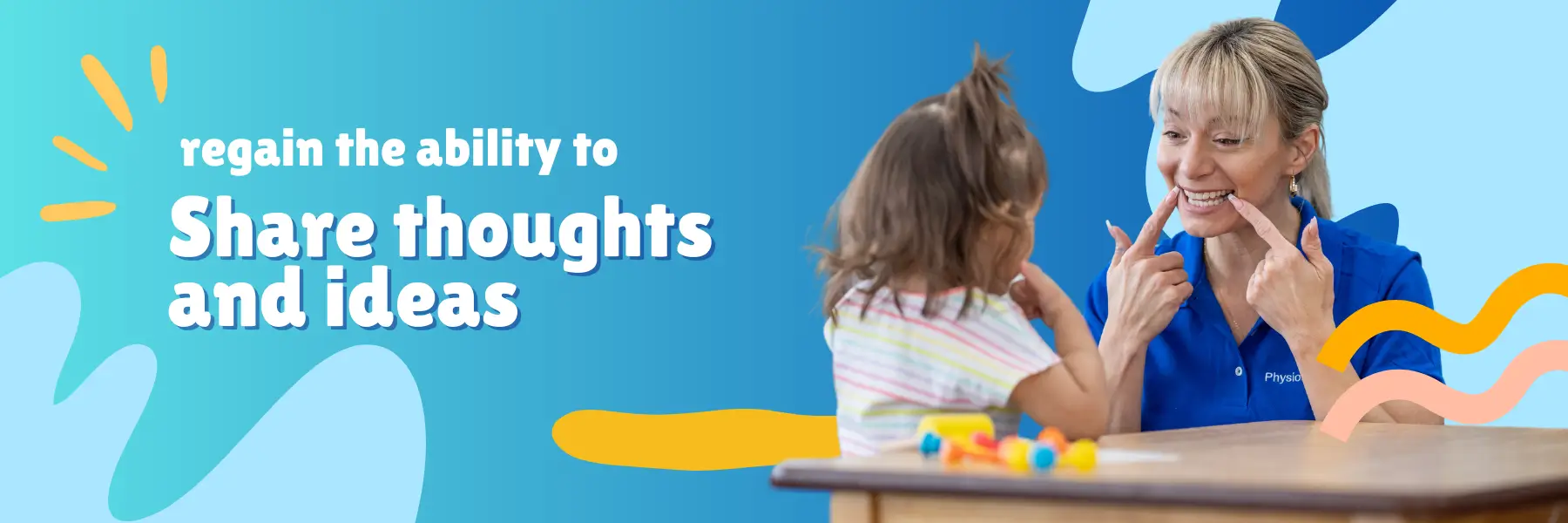
Everything You Need to Know About Speech Therapy Services in Sydney
Speech and language impairments affect a significant number of school-aged children in Australia, with a study by McLeod & McKinnon (2007) in NSW revealing that 13% of students have communication

Fun Sensory Play Ideas to Try at Home
Sensory play is a fantastic way to engage children’s senses and support their development. By stimulating sight, sound, touch, taste, and smell, sensory activities can enhance fine motor skills, promote

How Much Exercise Is Recommended for My Children?
Physical activity is essential for children’s health, development, and overall well-being. Regular exercise not only supports physical fitness but also enhances mental health, boosts mood, and improves cognitive function. As

Practical Steps to Perform Tummy Time: A Guide for Parents
Tummy time is an essential activity for infants that helps strengthen their neck, shoulders, and upper body muscles. It plays a crucial role in their motor development, promotes better head

Core Strengthening Exercises for Your Child: Fun Activities to Do at Home
Building core strength is essential for children as it supports overall stability, balance, and coordination. A strong core helps with everyday activities like sitting, walking, running, and playing sports. Fortunately,

What is an Evidence-Based Approach in Allied Health?
In the field of allied health, the integration of an evidence-based approach has become a cornerstone for providing effective and high-quality care. But what exactly does “evidence-based practice” (EBP) mean,
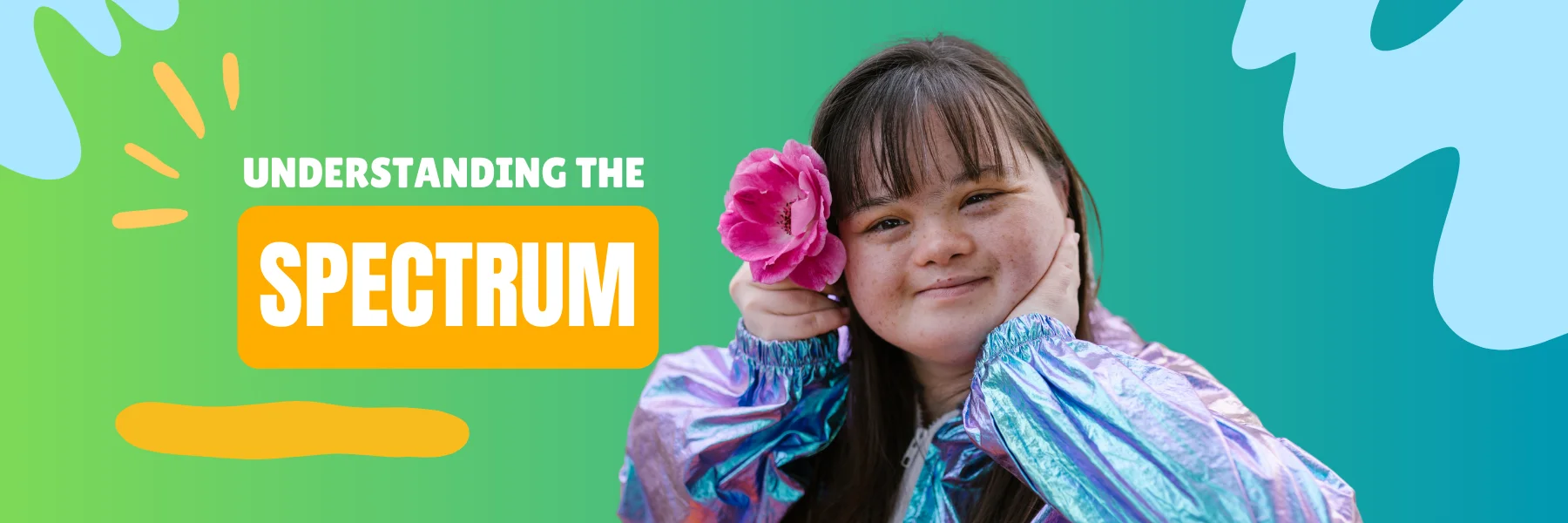
What is Autism Spectrum Disorder?
Autism Spectrum Disorder (ASD) is a complex neurodevelopmental condition that affects how individuals communicate, interact with others, and experience the world around them. The term “spectrum” is crucial, as it

Bike Riding Tips for Your Little One with a Disability
Bike riding is a wonderful way for children to enjoy the outdoors, improve their physical fitness, and develop coordination and balance. For children with disabilities, biking can also foster independence

What is Cerebral Palsy?
Cerebral Palsy (CP) is a group of neurological disorders that affect movement, muscle tone, and motor skills. It results from damage to the brain during its development, often occurring before,

Is My Child’s Speech Delayed? Understanding Speech Development
As parents, we often celebrate our children’s milestones, from their first steps to their first words. However, speech development can vary widely among children, leaving many parents wondering if their

What is Hydrotherapy and Is It Right for You?
Hydrotherapy, also known as water therapy, is a treatment that uses the properties of water to promote healing and improve physical well-being. It can be an effective approach for various

Arranging a Trial for Equipment in Assistive Technology
When it comes to assistive technology (AT), the right equipment can make a significant difference in the lives of individuals with disabilities. However, choosing the right device can be overwhelming,

Assistive Technology – What You Need to Know
In today’s world, assistive technology (AT) plays a crucial role in empowering individuals with disabilities and enhancing their quality of life. From simple tools to complex devices, AT can significantly

W Sitting – Should I Be Worried?
As parents, we often notice our little ones adopting various sitting positions as they play and explore. One position that frequently raises concerns is “W sitting,” where a child sits

How to Do CIMT Therapy at Home for Your Child
Constraint-Induced Movement Therapy (CIMT) is an innovative approach designed to improve motor function in children with neurological conditions such as cerebral palsy. By encouraging the use of the affected limb

Understanding the GMFCS Classification for Cerebral Palsy
Cerebral Palsy (CP) is a complex neurological condition that affects movement and posture, with varying degrees of severity across individuals. To better understand the functional abilities of those with CP,

Toe Walking – Is It Normal?
Toe walking is a common occurrence among children, and as an allied health provider, it is important to help parents understand this behaviour. While many kids will outgrow it without

Understanding Screen Time Recommendations for Your Child
In today’s digital age, screens are an integral part of daily life. From smartphones to tablets and televisions, children are exposed to screens more than ever. While technology can offer

Gross Motor Skill Development Ideas for Your Child at Home
Gross motor skills involve the large muscle groups that enable your child to perform essential movements such as running, jumping, climbing, and balancing. These skills are crucial for overall physical

Fun Fine Motor Skills Exercise Ideas for Your Little One
Fine motor skills are crucial for your child’s development, enabling them to perform everyday tasks like writing, buttoning clothes, and using utensils. Engaging in activities that strengthen these skills can

Practical Exercises to Do at Home for Hypotonia
Hypotonia, often referred to as “low muscle tone,” can affect children and adults, leading to challenges in movement, balance, and coordination. Fortunately, engaging in specific exercises at home can help

Understanding Your NDIS Plan
Navigating the National Disability Insurance Scheme (NDIS) can be overwhelming, especially when it comes to understanding your NDIS plan. Your plan is a vital document that outlines the supports and

What is the NDIS?
The National Disability Insurance Scheme (NDIS) is a transformative program in Australia designed to provide support and services to individuals with disabilities. Launched in 2013, the NDIS aims to give

What is Speech Therapy?
Speech therapy is a specialised field that focuses on diagnosing and treating communication and swallowing disorders. It plays a crucial role in helping individuals of all ages improve their ability

What is Peadiatric Occupational Therapy?
When we think about childhood, we often picture play, learning, and exploration. However, for some children, engaging in these everyday activities can be a challenge. Peadiatric occupational therapy (OT) plays

What is Brittle Bone Disease and How Can Therapy Help?
Brittle Bone Disease, also known as Osteogenesis Imperfecta (OI), is a genetic disorder characterised by fragile bones that break easily, often with little or no apparent cause. This condition is

How Therapy Can Help Someone with Juvenile Arthritis
Juvenile arthritis (JA) is an umbrella term for various autoimmune and inflammatory conditions that affect children, leading to joint pain, swelling, and stiffness. Managing JA effectively requires a multifaceted approach,

How Therapy Can Help Someone with Spinal Muscular Atrophy
Spinal muscular atrophy (SMA) is a genetic disorder characterised by the progressive degeneration of motor neurons in the spinal cord, leading to muscle weakness and atrophy. While there is currently

How Therapy Can Help Someone with Multiple Sclerosis
Multiple sclerosis (MS) is a chronic neurological condition that affects the central nervous system, leading to a wide range of physical, cognitive, and emotional symptoms. While there is currently no

Recently Diagnosed with a Genetic Disorder: How Therapy Can Help
Receiving a diagnosis of a genetic disorder can be overwhelming for individuals and their families. Genetic disorders can vary widely in their symptoms and impacts, but they often present challenges

Understanding Paediatric Stroke and How Therapy Can Help
What is Paediatric Stroke? A peadiatric stroke occurs when there is a disruption in blood flow to the brain in children, leading to brain injury. Although strokes are often associated

Understanding Developmental Coordination Disorder (DCD) and How Therapy Can Help
Developmental Coordination Disorder (DCD), often referred to as dyspraxia, is a motor skills disorder that affects coordination and movement. Children with DCD may struggle with tasks that require fine and

How Therapy Can Help Someone with Developmental Delay
Developmental delay refers to a child’s slower-than-typical progress in reaching developmental milestones, which can affect areas such as speech, motor skills, cognitive abilities, and social interactions. Early intervention through therapy

How Therapy Can Help Someone with Angelman Syndrome
Angelman Syndrome is a neurogenetic disorder characterised by developmental delays, speech impairments, movement and balance problems, and distinctive behaviours such as frequent laughter and a happy demeanour. While there is

How Therapy Can Help Someone with Autism
Autism Spectrum Disorder (ASD) is a complex neurodevelopmental condition characterised by challenges in communication, social interaction, and behaviour. Each individual with autism is unique, presenting a distinct set of strengths

How Therapy Can Help Someone with Cerebral Palsy
Cerebral palsy (CP) is a neurological condition that affects movement, muscle coordination, and posture. Each individual with CP has unique needs, and the severity can vary widely. While there is

My Child Has Down Syndrome: What You Should Know About Therapy
As a parent of a child with Down syndrome, you may have many questions about the best ways to support your child’s development. Early intervention and therapy can play a

Does My Child Drink Enough Water?
Keeping your child properly hydrated is crucial for their health and well-being. Water plays a vital role in nearly every bodily function, from regulating temperature and supporting digestion to maintaining

Fun Ideas to Get Your Child to Exercise
Getting children to exercise can sometimes feel like a daunting task, especially with all the distractions of screens and sedentary activities. However, making physical activity enjoyable and engaging can transform